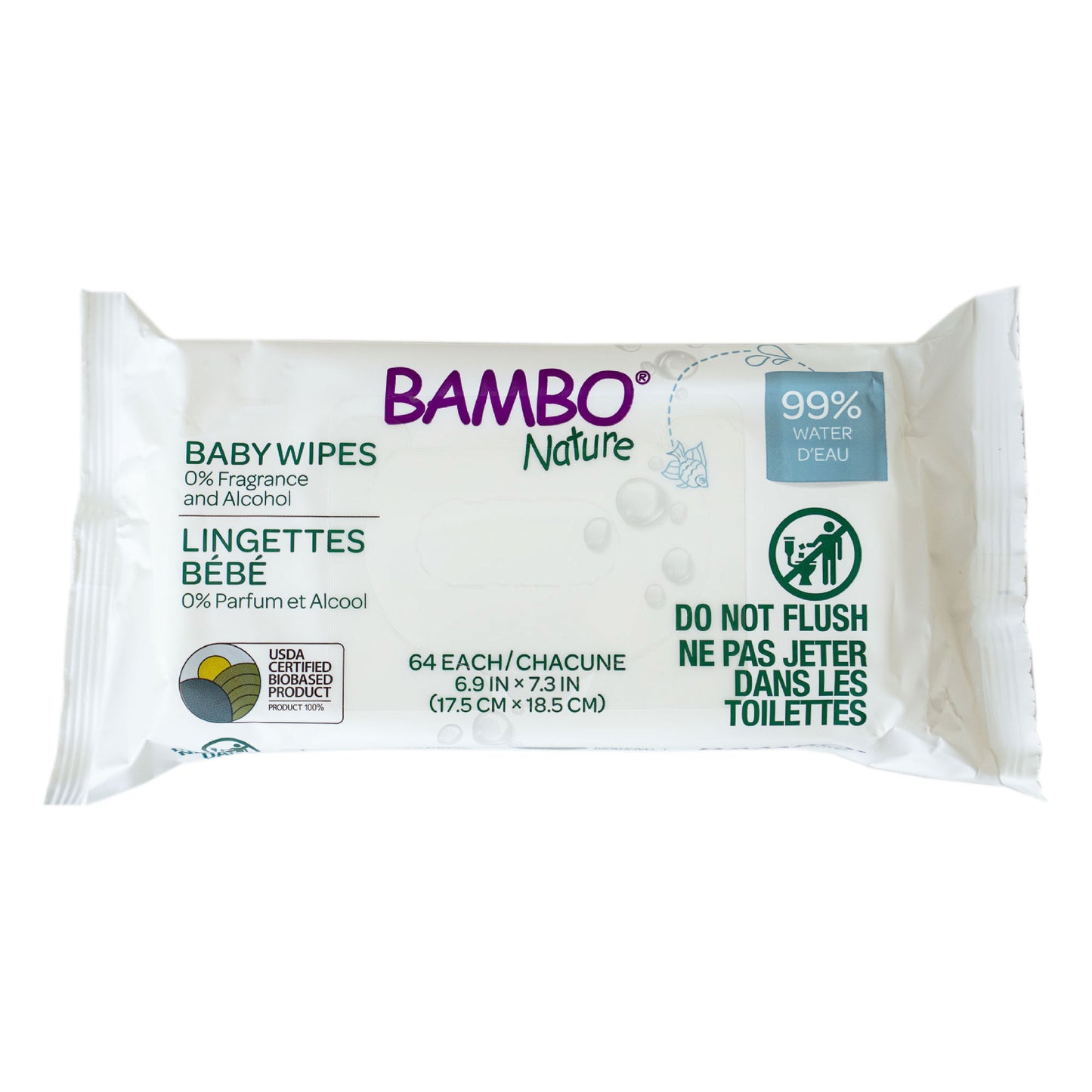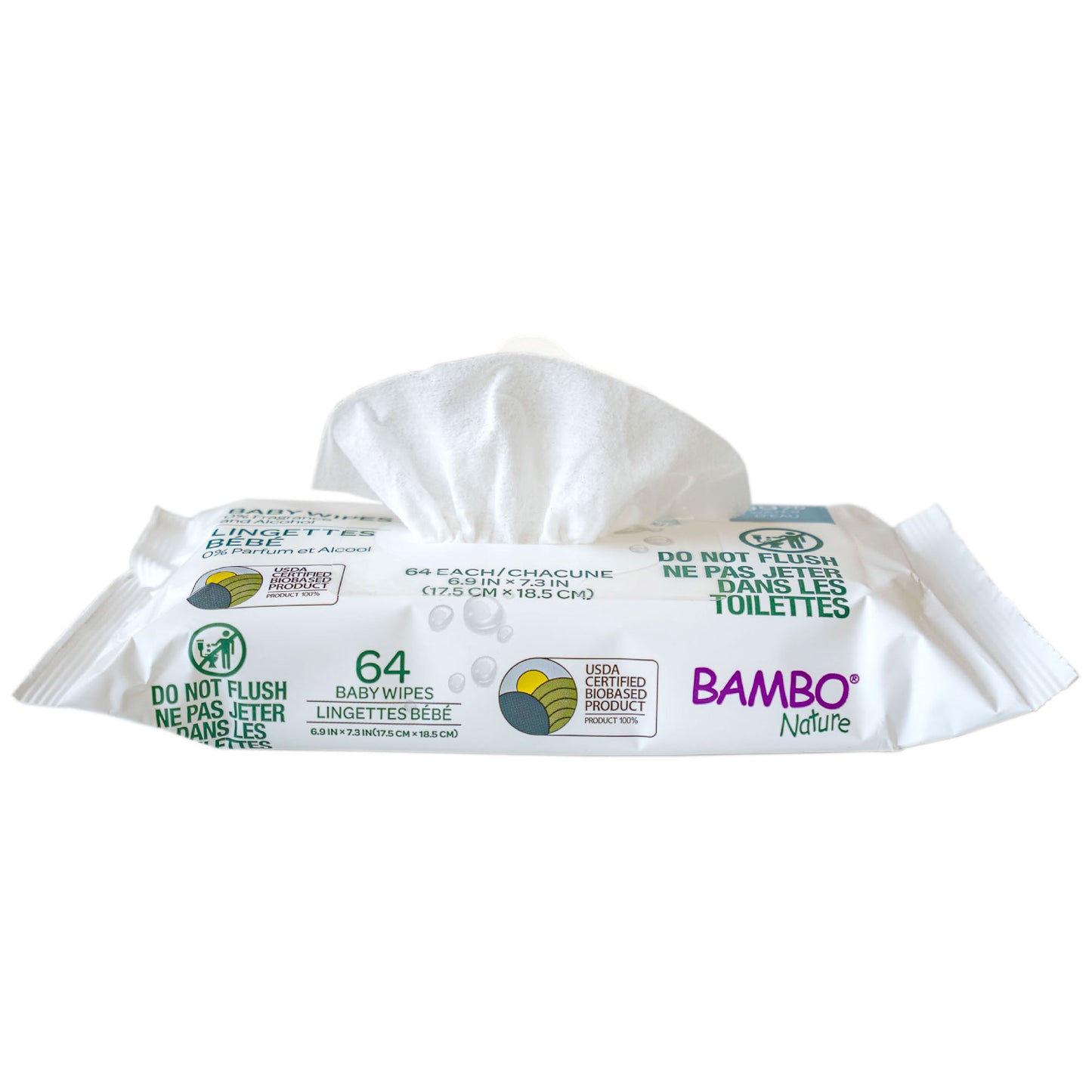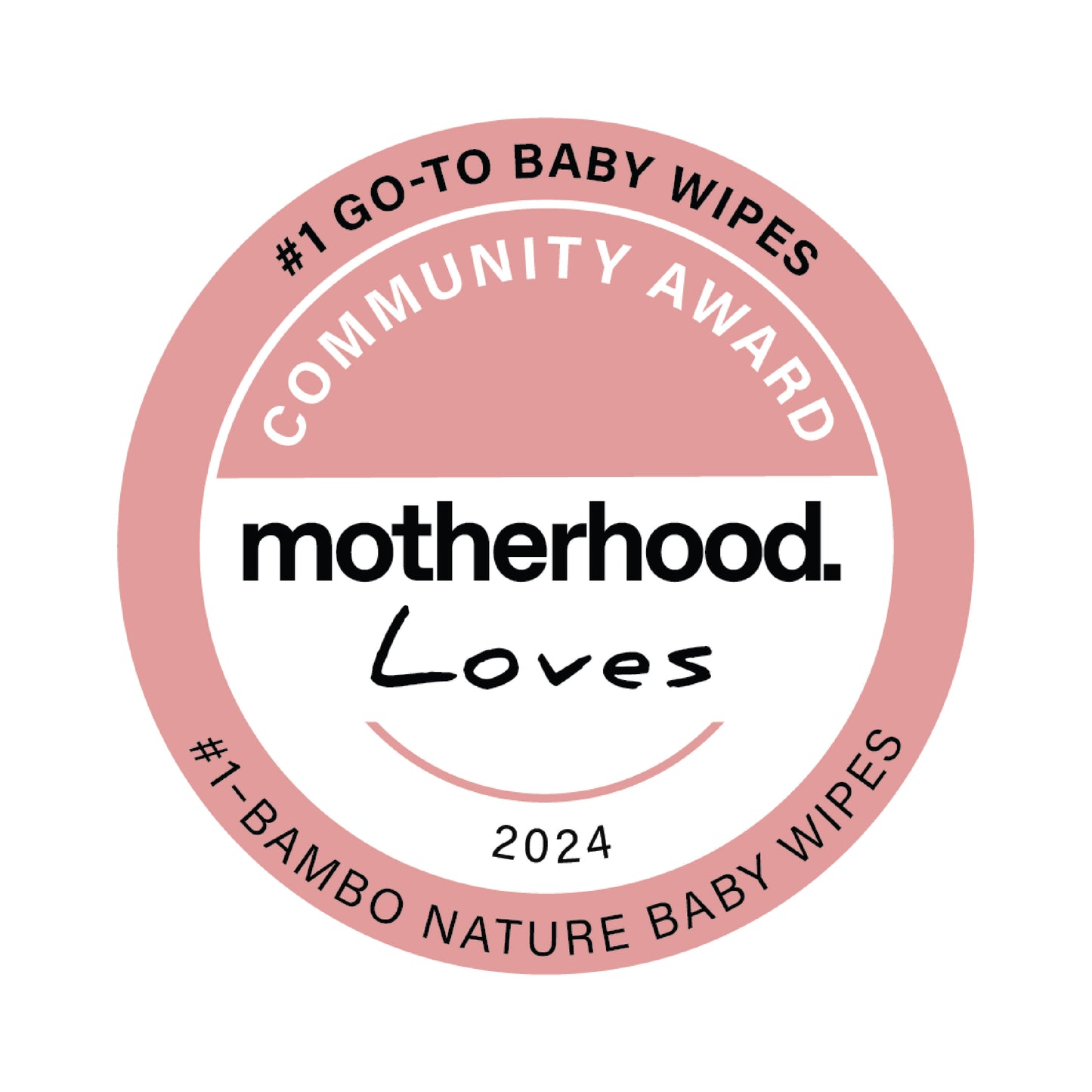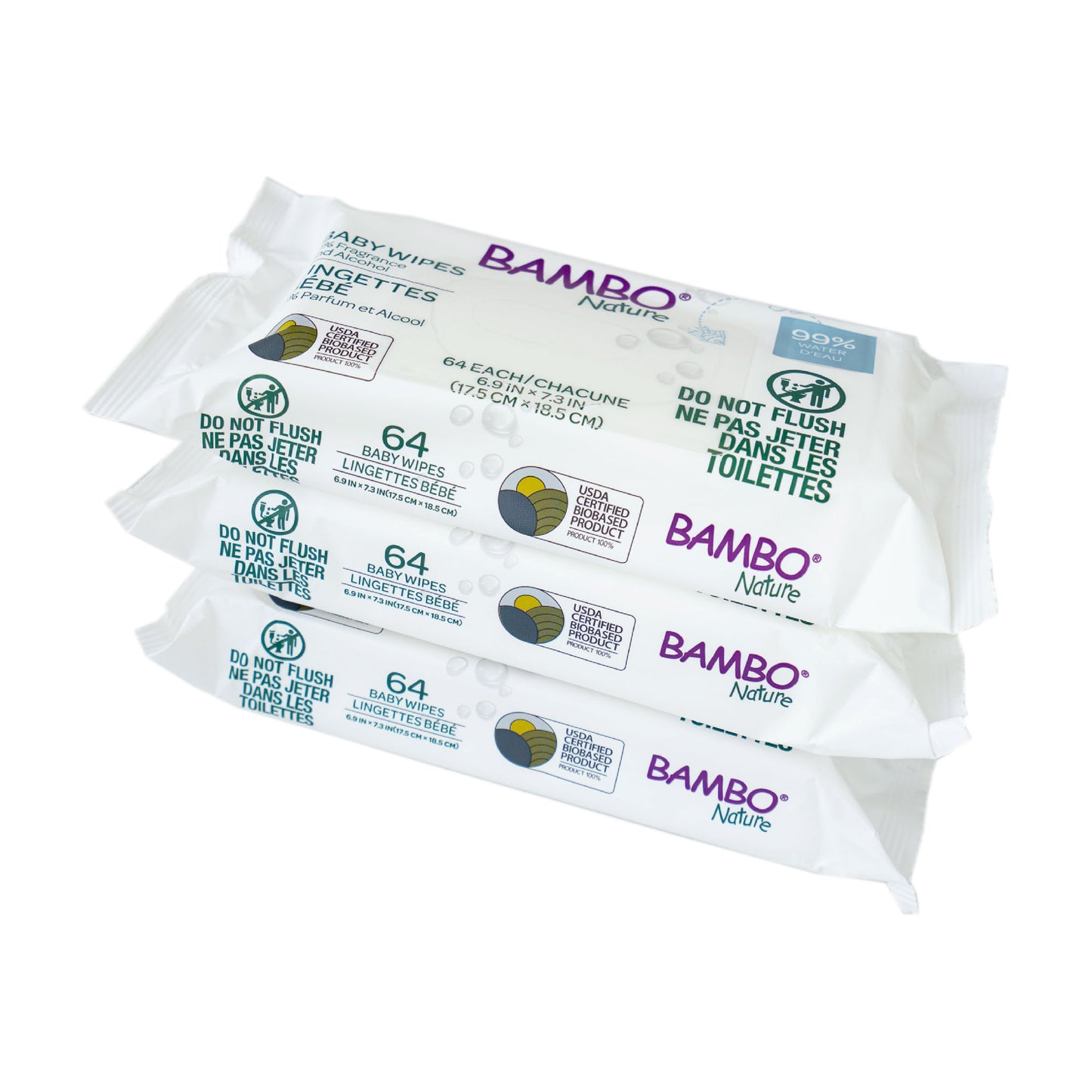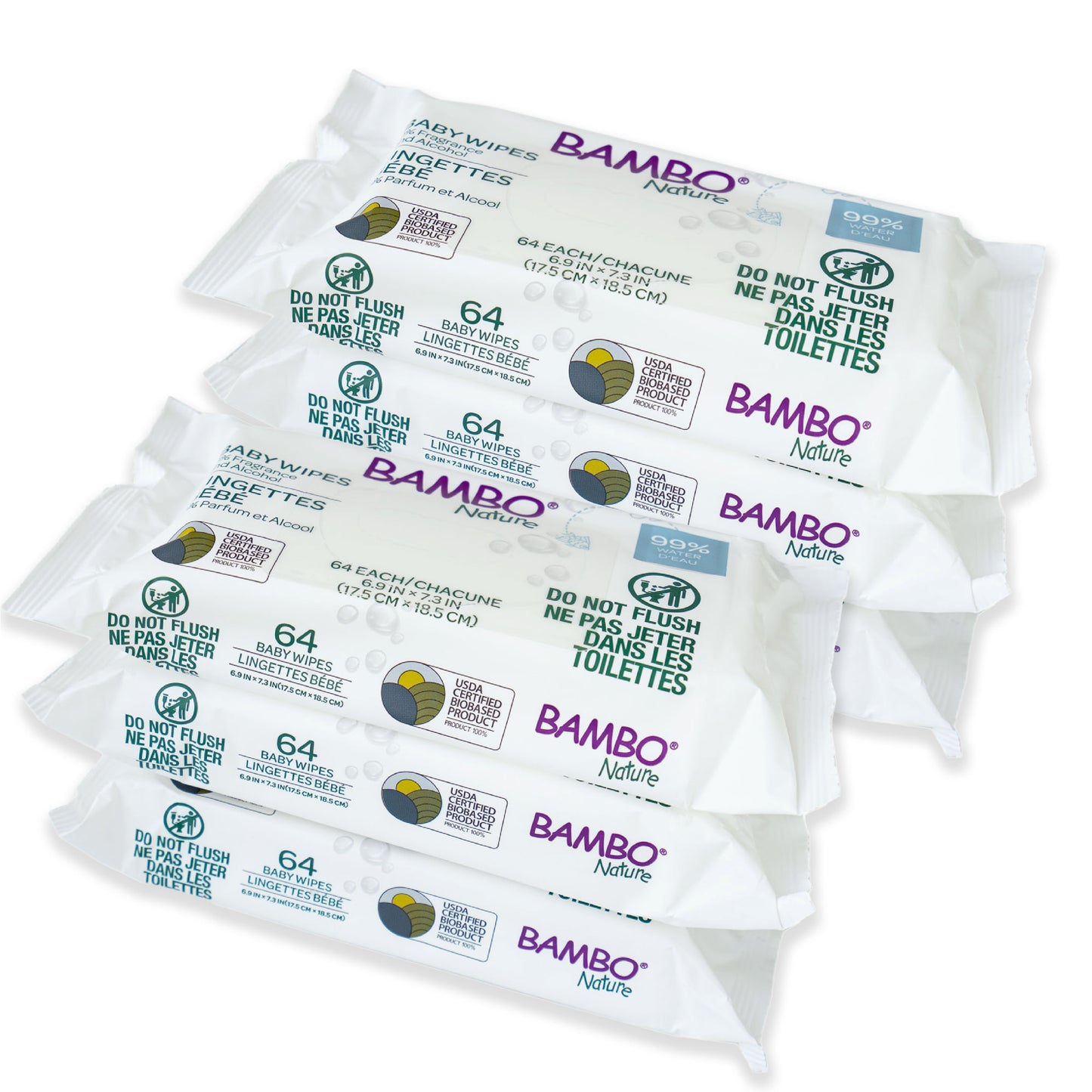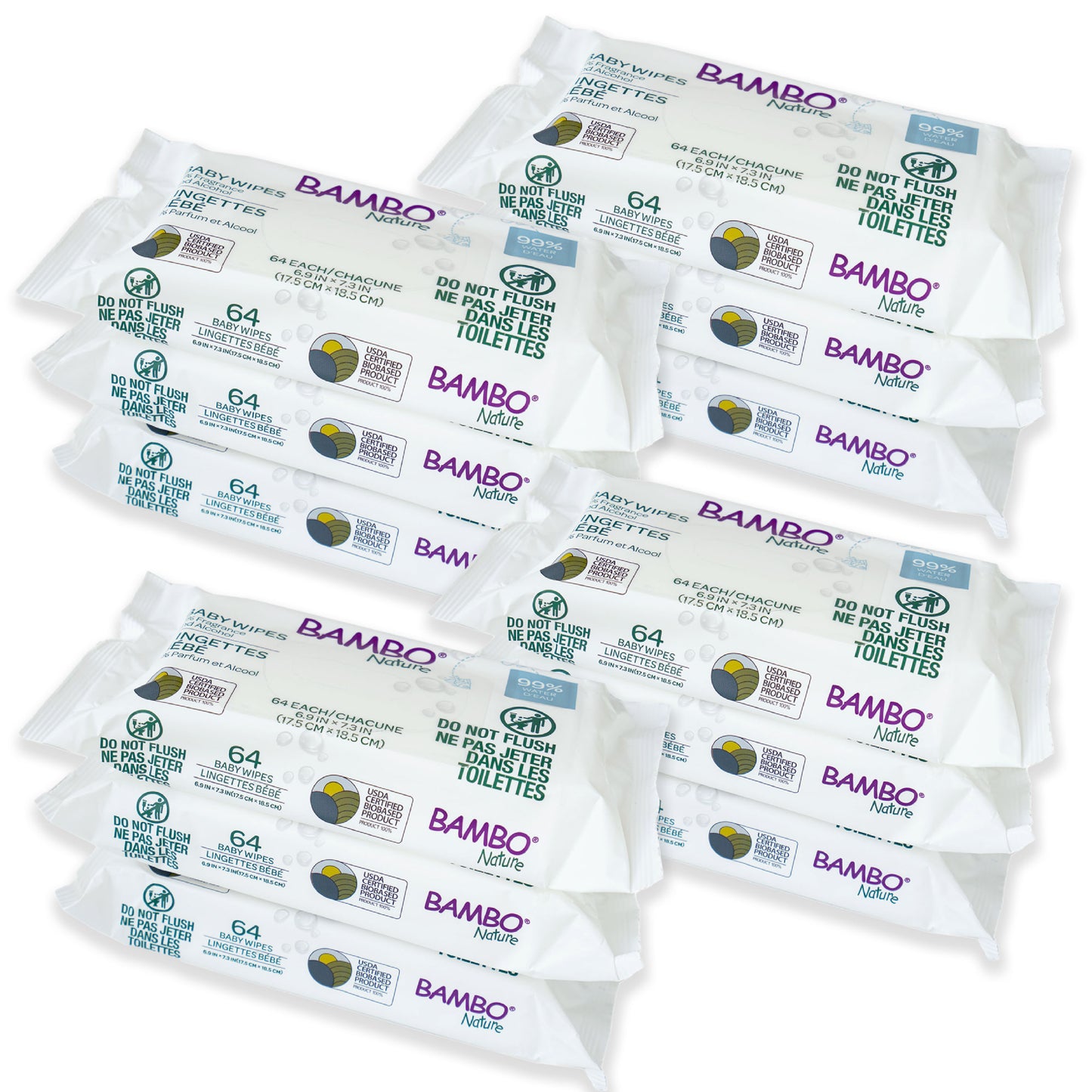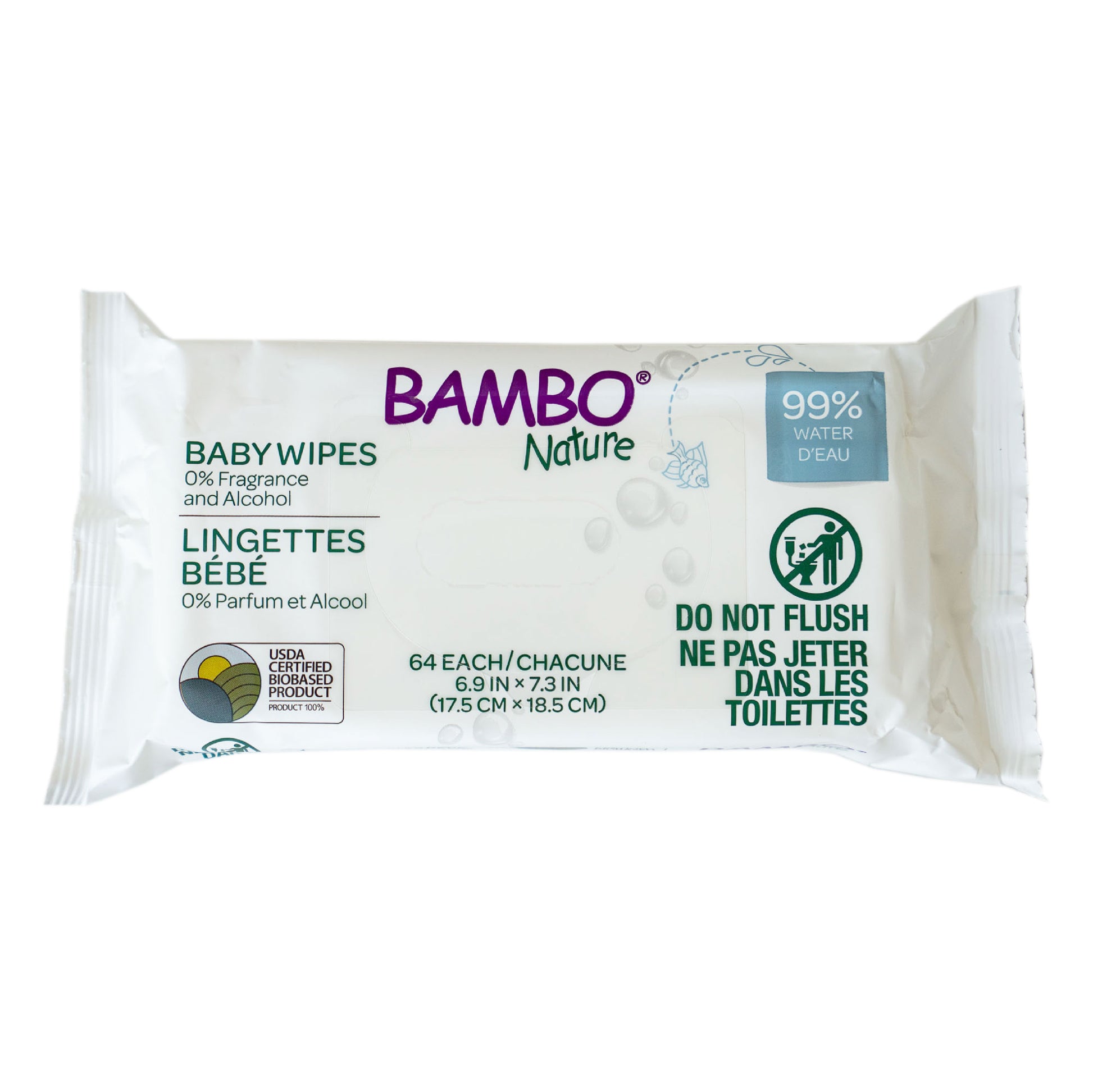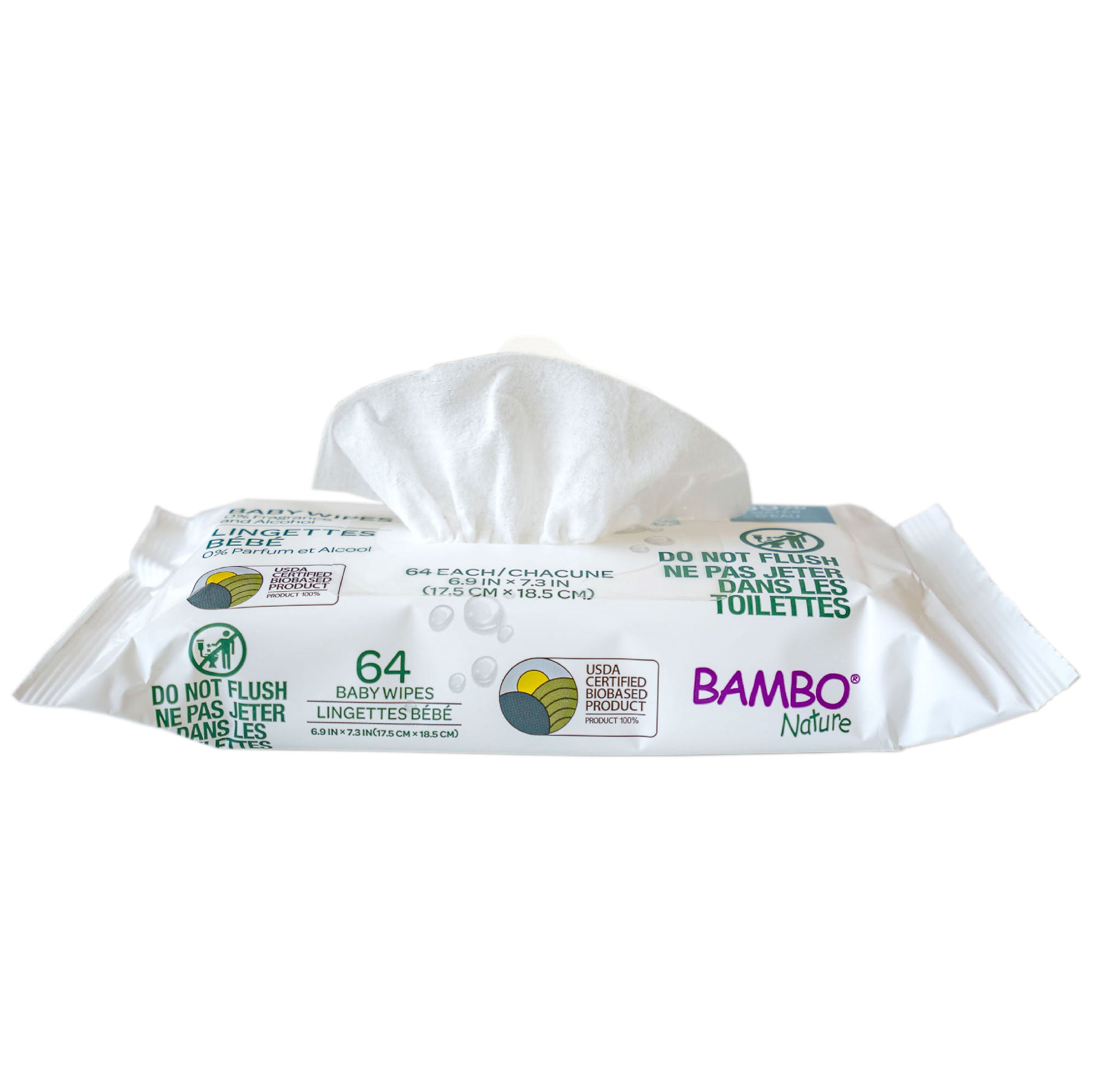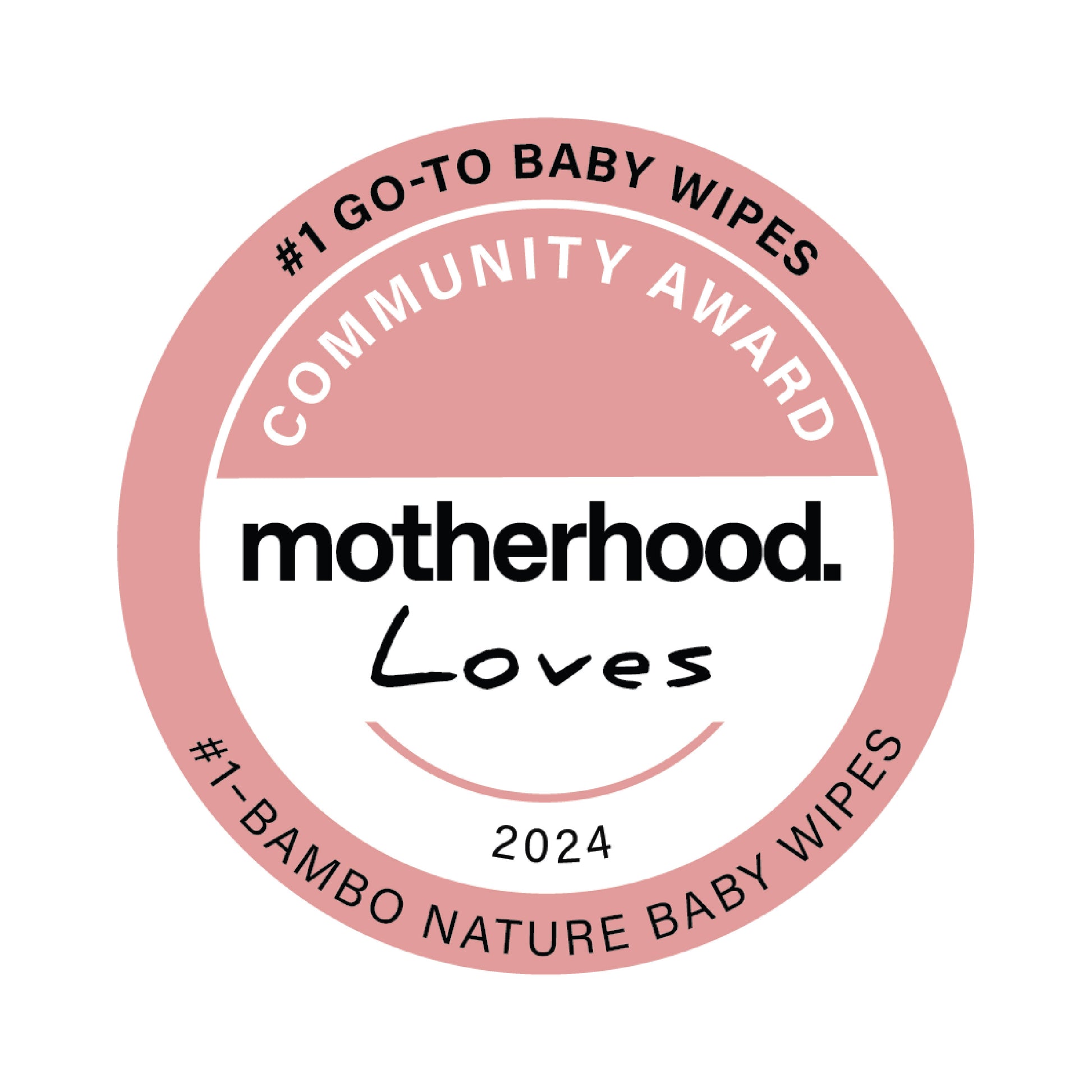Bambo Nature USA
Bambo Nature Baby Wipes
Bambo Nature Baby Wipes
SKU: ITEM#:1999914029-X-1
Couldn't load pickup availability
Bambo Nature Baby Wipes are USDA CERTIFIED BIOBASED and offer a 99% water formulation with Aloe that is fragrance, dye, and paraben-free. Because they are free of all known allergens, you can rest easy knowing they are safe for even the most sensitive skin.
- Made with 100% Plant-Based Fibers
- Formulated with 99% Water
- Contain Aloe to Help Moisturize Baby's Skin.
- Plastic Free & Vegan-Friendly
- Free from Sulfates, Parabens, Petrolatum, Dyes, & Phthalates
- Hypoallergenic and Fragrance-Free
- Dermatologist Approved and Recommended for Sensitive &
Eczema Prone Skin
Size Chart & Bag Count
Size Chart & Bag Count
| Unit Count | Size | Quantity |
|---|---|---|
|
1 Pack |
6.9" x 7.3" | 1pack - 64 pcs |
|
3 Pack |
6.9" x 7.3" | 3pack - 192 pcs |
|
6 Pack |
6.9" x 7.3" | 6pack - 384 pcs |
|
Case |
6.9" x 7.3" |
12packs/case
Case - 768pcs |
Ingredients
Ingredients
Water, Aloe Barbadensis Leaf Juice, Hydroxyacetophenone, Sodium Benzoate, Citric Acid.
Certifications
Certifications

|
Learn more about Bambo Nature Certifications & Ecolabels.
Shipping & Returns
Shipping & Returns
We offer Free Shipping on all U.S. orders over $50. We charge a $6.95 shipping fee on all U.S. orders under $50. Fulfillment takes 3-5 business days.
Returns are accepted for up to 90 days. Learn more about our Return Policy.
Share
